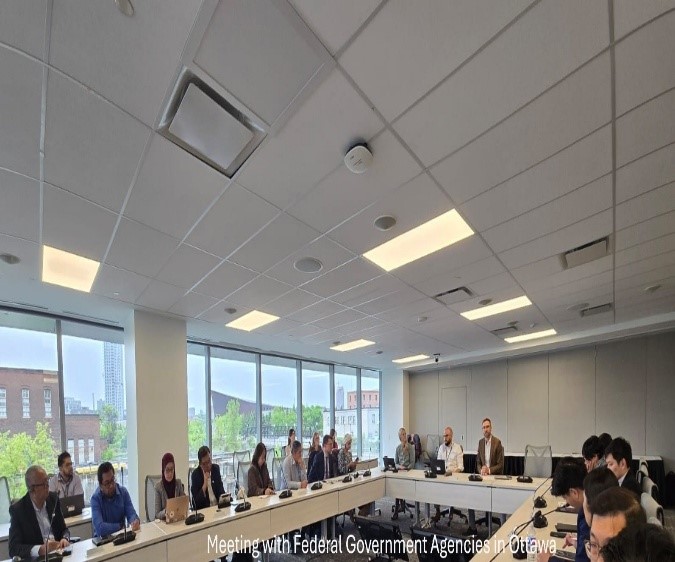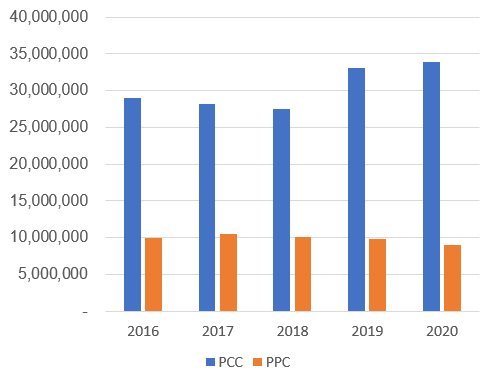

Ketua Asosiasi Semen Indonesia (ASI), Lilik Unggul Raharjo, mewakili Indonesia dalam Studi Tur Dekarbonisasi Semen di Kanada yang berlangsung dari 26 hingga 31 Mei 2025. Acara ini merupakan program penting yang mempertemukan pemangku kepentingan dari ASEAN dan Kanada untuk mempercepat transisi menuju industri rendah karbon, khususnya di sektor semen dan konstruksi.
Program ini diselenggarakan oleh UNIDO (Organisasi Pengembangan Industri PBB) dengan dukungan dari pemerintah Kanada, khususnya Kementerian Lingkungan Hidup dan Perubahan Iklim Kanada (ECCC). Tujuan utamanya adalah untuk memperkuat pembelajaran antar sesama, memperkenalkan teknologi dekarbonisasi terbaru, dan mempromosikan praktik terbaik internasional dalam kerangka kerja Kerjasama Selatan-Selatan.
Sebagai Ketua ASI, partisipasi dalam acara ini merupakan kesempatan penting untuk memperkuat posisi Indonesia dalam kolaborasi regional menuju industri semen yang lebih ramah lingkungan. Selain memfasilitasi dialog lintas batas, Ketua ASI juga menyoroti relevansi hasil kunjungan ini terhadap agenda dekarbonisasi industri dalam negeri.
26 Mei – Edmonton
Kunjungan ke Pemerintah Alberta untuk memahami Rencana Pengurangan Emisi dan Pengembangan Energi (ERED) serta sistem penetapan harga karbon Teknologi Inovasi dan Pengurangan Emisi (TIER).
Dilanjutkan dengan kunjungan ke InnoTech Alberta dan mitra industri yang mempresentasikan inovasi dalam teknologi penangkapan karbon (penangkapan CO₂) dan CCUS (Penangkapan, Pemanfaatan, dan Penyimpanan Karbon).
27 Mei – Heidelberg Materials
Mengamati dua proyek percontohan penangkapan karbon dengan kapasitas 0,3 dan 3 ton CO₂ per hari. Keduanya berfungsi sebagai langkah awal menuju fasilitas CCUS skala penuh, yang saat ini berada pada tahap akhir perencanaan teknis (FEED). Kunjungan tersebut juga mencakup Distrik Net-Zero Blatchford dan pertemuan dengan Pemerintah Kota Edmonton untuk membahas strategi iklim tingkat kota.
29 Mei – Ottawa
Pertemuan langsung dengan lembaga pemerintah federal seperti ECCC, NRCan, NRC, dan Asosiasi Semen Kanada.
Kunjungan ke Giatec juga menyoroti kemajuan dalam teknologi pengujian beton pintar.
30 Mei – Standar & Pengadaan
Pembahasan dengan Dewan Standar Kanada dan Sekretariat Dewan Keuangan mengenai pengadaan publik ramah lingkungan, standar karbon tertanam, dan pelaporan siklus hidup digital.
Kunjungan tersebut diakhiri dengan kunjungan ke Laboratorium CanmetENERGY Ottawa, yang memamerkan penelitian tentang biokarbon dan energi berkelanjutan.
Poin Penting untuk Indonesia (sesuai dengan PIH – Pusat Industri Hijau, Kementerian Perindustrian):
- Memperkuat koordinasi kelembagaan antar kementerian
- Mengembangkan dan mengadopsi standar nasional untuk bahan-bahan rendah karbon
- Menerapkan kebijakan penetapan harga karbon yang spesifik sektor dengan fleksibilitas untuk industri semen
- Membangun pasar karbon lintas sektor yang transparan dengan sistem MRV (Pemantauan, Pelaporan, Verifikasi) yang kuat
- Mewajibkan pembelian hijau untuk produk semen dan baja
- Mendorong riset dan pengembangan serta inovasi teknologi bersih
- Memperluas pelatihan dan pertukaran pengetahuan di tingkat regional
Melalui partisipasi ini, Ketua ASI menegaskan kembali komitmen industri semen Indonesia untuk mempercepat transformasi menuju industri yang lebih hijau dan tahan terhadap perubahan iklim, yang sejalan dengan target pembangunan berkelanjutan nasional dan regional.




